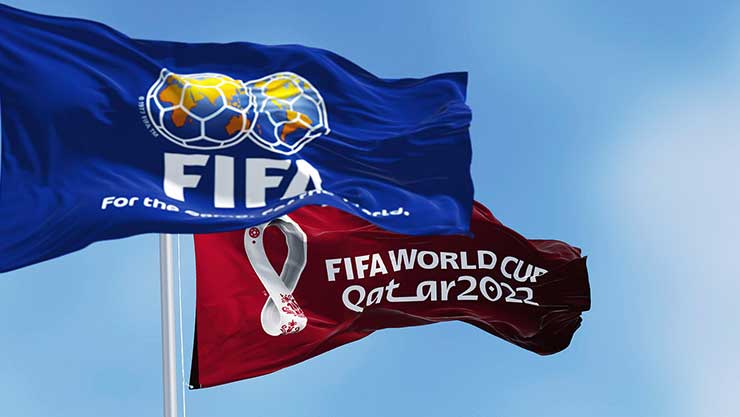4 Lessons to Take Away From 'FIFA Uncovered'
The Netflix series shows the pitfalls of big-time international events.

The high-stakes world of international events is unfortunately prone to problematic behavior. FIFA Uncovered, streaming on Netflix, underscores this point as it examines corruption centered on the World Cup site selection process.
Few events are as valuable to nations as the World Cup. Past and present government officials are often involved in the bidding process, including the likes of Bill Clinton and the late Nelson Mandela. The series details evidence of alleged bribery and other criminal acts that ultimately led the FBI to press charges against members of FIFA’s executive committee. Others, including the late Chuck Blazer, the U.S. representative to that board who rose to CONCACAF general secretary, had already been brought down by the scandal prior to the FBI’s raid (which relied, in part, on Blazer’s inside information).
Circumstances around mass soccer corruption are unique. Only a few other sports competitions are as coveted or worth as much in terms of revenue and reputation as the World Cup. That said, the illicit acts covered in the documentary can be gleaned for lessons that apply to all event professionals.
Here, we highlight some takeaways that can help sports organizations retain their good name while still producing competitions that draw big dollars and audiences.

Absolute Power Corrupts
The ambition to maintain control over an organization is an issue across the board, but it manifests very publicly in sports. Some officials justify their actions because they believe their presence is the best for the game they represent. Others are enraptured by a luxurious lifestyle financed by the wheeling and dealing associated with negotiations. Yet others simply enjoy the power trip of making important decisions. All three types are obvious in the FIFA affair.
There’s no changing human nature, but acknowledging it can stave off problems. A best practice is to create a series of checks and balances within an organization so one person can’t take down the whole ship. Boards of directors should also be regularly vetted and evaluated to catch any problem signs early. Term limits is another option to consider keeping leaders’ attention on the job at hand versus making decisions to stay in office.
Remain Transparent
Rights holders and event production teams understandably want and should have control over the site selection process. There’s value in a secret vote for a host, but the steps leading to the final decision should remain open. Ideas to showcase steps involved include sending a video team and/or writer to cover site visits. Reporting on the questions asked and venues displayed is important information that should not interfere with the need for sensitive details to remain confidential. Likewise, RFPs may include some matters not meant for publication, but posting public-facing versions is a way to demonstrate proper criteria is being evaluated. If nothing else, ensure official notes from general meetings and assemblies are available.
Also be sure to note partners and the roles they play. ISL was FIFA’s lone marketing agency for years before it went under. Circumstances around the arrangement with FIFA are portrayed as shady in the Netflix series. Be ready and able to explain business arrangements.
Recognize an Event’s Power
FIFA Uncovered uses the term “sportswashing” to describe a host’s attempts to use athletics to present a better face to the world. Infamous cases include the 1936 Summer Games in Nazi Germany and the 1978 World Cup in a then-authoritarian Argentina. Both are extreme examples but raise the question about sending an event to a destination that may not share an organization’s values. For example, is awarding a community known for intolerance the same as condoning attitudes? Or can a competition and its influx of fans serve as tools to build tolerance? That answer to all those tough questions can only be decided by event organizers. Regardless of what side a planner or event committee falls on, the discussion must be had or there’s a risk of sending the wrong message.
Sports Are Games!
No matter the money involved or size of an event, never forget sports are meant to be fun. Too much politics and economics zaps the joy out of it. Tracking revenue and remaining professional are, of course, essential to a solid event. But if the business side overshadows the on-field action, it’s a troubling sign that may indicate wrongdoing. The scandal over FIFA awarding Qatar the 2022 World Cup is only the latest in a line of controversies since the international soccer organization, which remains listed as a nonprofit, adopted a business-first approach in the late 1970s. While FIFA has survived and soccer is as popular as ever, time and resources to fend off criticism take energy away from community-building activities. And while the World Cup is so valuable, there don’t appear to be major economic repercussions from controversies, other events could be more vulnerable to outside criticism.








